
Anti-Counterfeiting
Through research, knowledge sharing, and partnerships with international organizations, UL Standards & Engagement advances safety by reducing the risk and helping to prevent harm from product counterfeiting.
What is the Risk to You?
Counterfeit products can pose a significant risk to people and human health, with some incidents resulting in injury, illness, and death. Counterfeit goods are often made to imitate quality brand merchandise, but may also display unauthorized safety markings — deceiving consumers into thinking they are buying products that conform to safety standards. These items are often made with cheap or even unsafe materials, and in unregulated conditions that contribute to other crimes such as human trafficking, forced labor, and child slavery.
When these products infiltrate supply chains, they can introduce serious health and safety risks to consumers, law enforcement, other first responders, supply chain personnel, and industry end users. Additionally, counterfeit products typically cannot be recycled; they must be destroyed or sent to landfills, causing harm to the environment. ULSE Anti-Counterfeiting aims to address these challenges to protect people, property, and the planet.
By the Numbers
Hover over each stat below to learn about the impacts of counterfeit products and how ULSE Anti-Counterfeiting is combatting these widespread threats to safety.
Keep reading to find out how ULSE Anti-Counterfeiting is working to make the world safer for you.
How ULSE Anti-Counterfeiting is Working to Combat IP Crime
Launched in 1996, our anti-counterfeiting program has continually evolved while maintaining a consistent vision, purpose, and focus on safety: to serve as an objective resource that engages and convenes stakeholders and experts in deploying a safety-focused, challenge-driven innovation strategy aimed at reducing risk and preventing harm caused by product counterfeiting.
Our Partnership with INTERPOL
We contribute to global safety through nearly three decades of trusted partnerships with INTERPOL, international law enforcement, first responder agencies, government organizations, industry groups, and academic institutions. By collaborating with these partners and other experts, we advocate for law enforcement and first responders while equipping them with the capabilities to remove unsafe counterfeit products from the marketplace before they reach consumers, ultimately helping to advance global safety outcomes.
In April 2010, ULSE Anti-Counterfeiting and INTERPOL launched the International IP Crime College. It is the only fully interactive online training platform for building capacity within and among global law enforcement and providing a broad-based curriculum to combat product counterfeiting and related intellectual property crime. Since its inception, the College has evolved into a highly respected and renowned law enforcement center with nearly 40,500 learners from 207 countries, representing 1,200 agencies and offering courses in six languages.
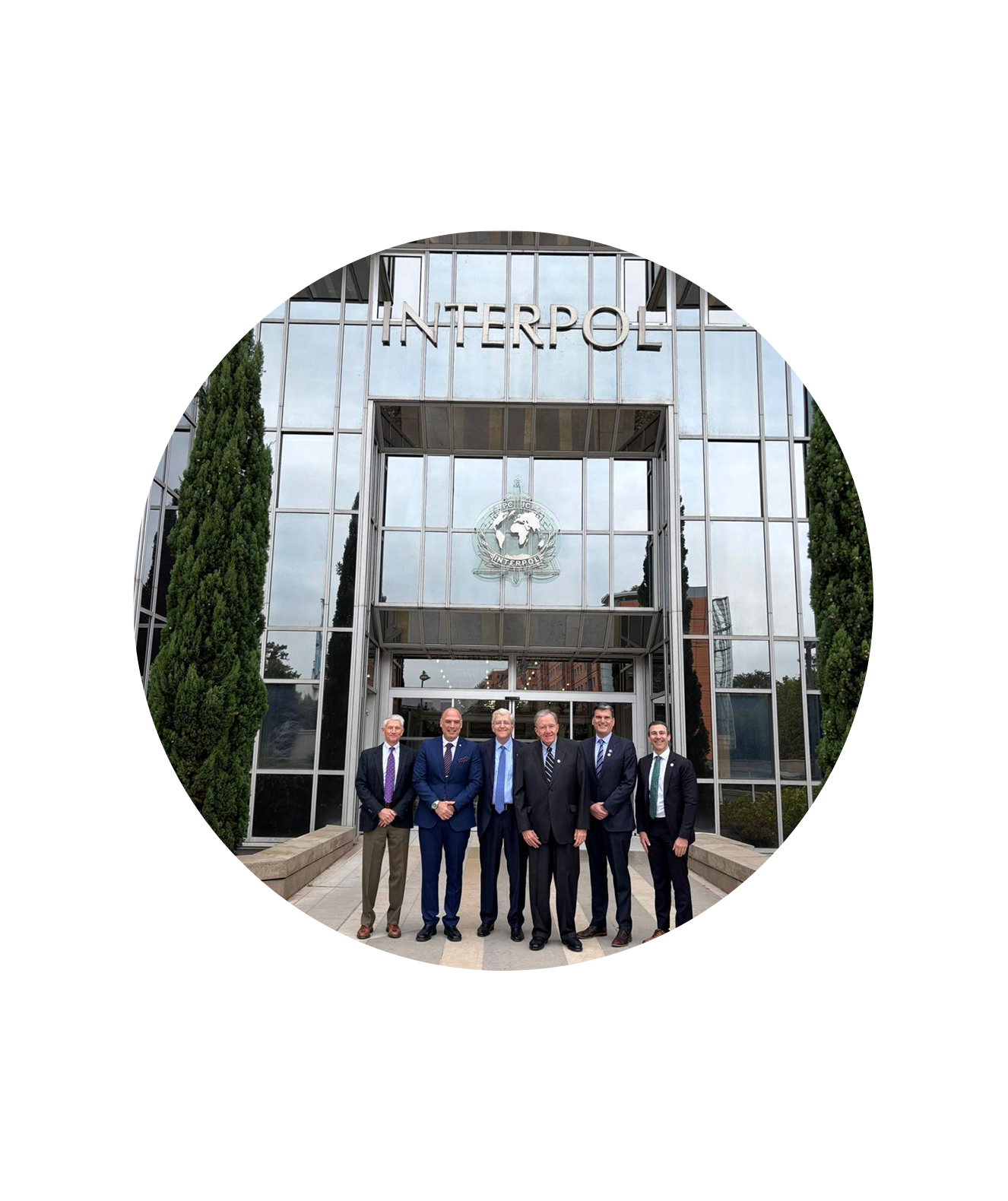
The IP Crime Conference
UL Standards & Engagement and INTERPOL also combat IP Crime through cohosting the International IP Crime Conference for law enforcement and private sector professionals. This annual event provides an exceptional platform for front-line personnel and decision-makers to collaborate, network, discuss best practices, share insights, and explore innovative approaches. The interactive agenda aims to enhance capabilities, expand knowledge, increase expertise, and cultivate readiness to overcome IP crime challenges, particularly those involving transnational, organized IP crime and interrelated illicit trade activities.
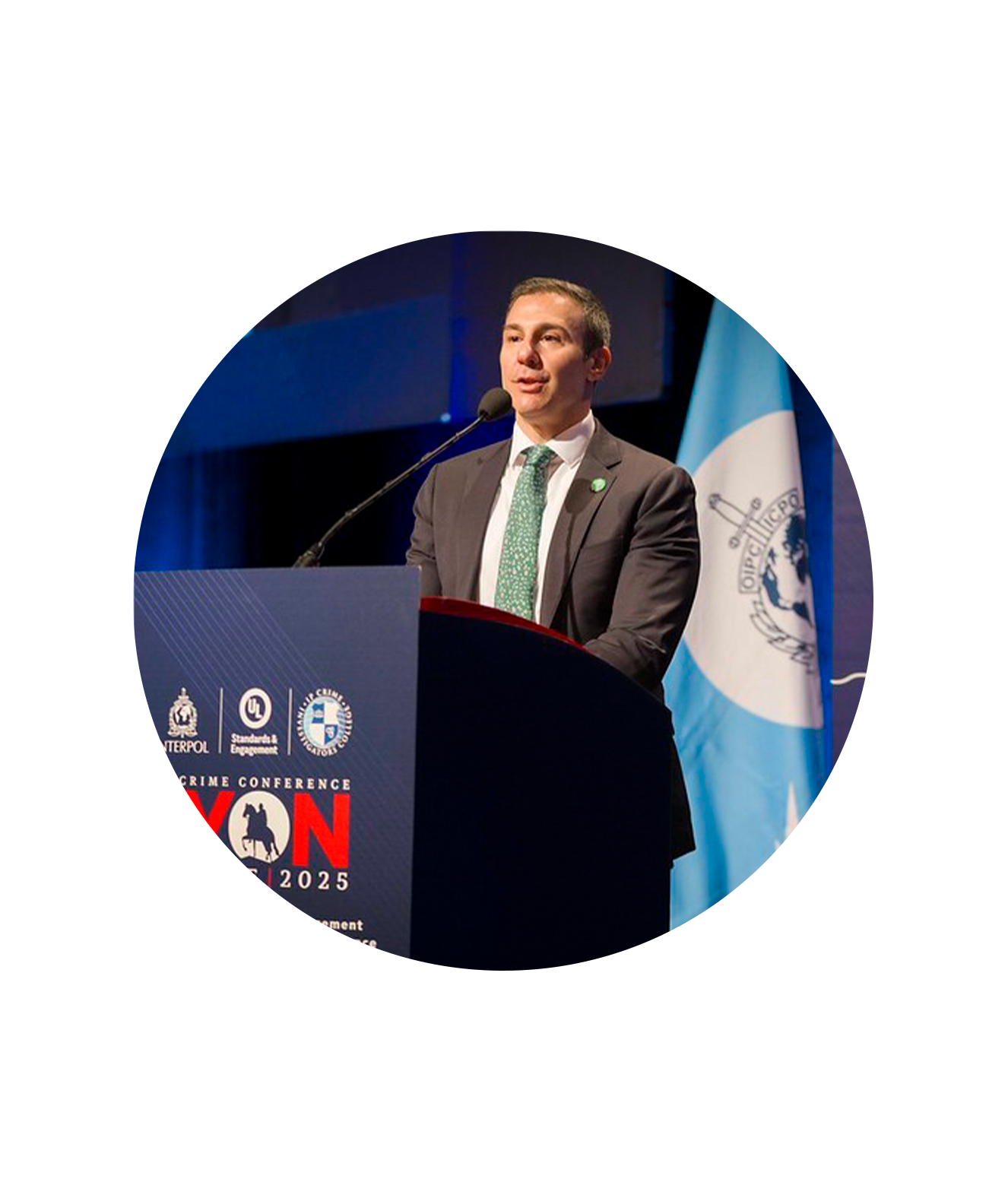
The Certificate in Intellectual Property Crime and Illicit Trade
The University of Portsmouth, INTERPOL, and ULSE have cooperated in launching the Certificate in Intellectual Property Crime and Illicit Trade. It is an educational short course delivered by the University of Portsmouth’s School of Criminology and Criminal Justice. It provides unparalleled access to the latest research and expertise in global IP crime and illicit trade.
The CIPCIT course is distance learning and is delivered online. It explores IP rights, different types of crime and the range of offenders. Students will study theories explaining why people commit these crimes, learn about the social and economic impacts, and examine protection and enforcement strategies. This course contributes to students’ professional practice and prepares them for further study in this area. The credits students earn are recognized academically at the 1st-year undergraduate level, so the course provides a pathway into full degree programs.

Watch: Shaping a Safer, Counterfeit-Free Future
Uniting for Integrity: How Anti-Counterfeiting Partnerships Are Protecting the Supply Chain
Learn how ULSE Anti-Counterfeiting collaborates with partners and other experts to advocate for law enforcement, first responders, and other agencies advancing global safety outcomes.
Protecting Consumers, Ports and Supply Chains
Learn how ULSE Anti-Counterfeiting and the other organizations brought together by the IP Crime Conference help create a safer, more secure, and more sustainable world by reducing risk and preventing the harm to people, communities and the environment which results from product counterfeiting.
The 2025 IP Crime Conference
Learn more about the 2025 International Law Enforcement IP Crime Conference hosted in Lyon, France.
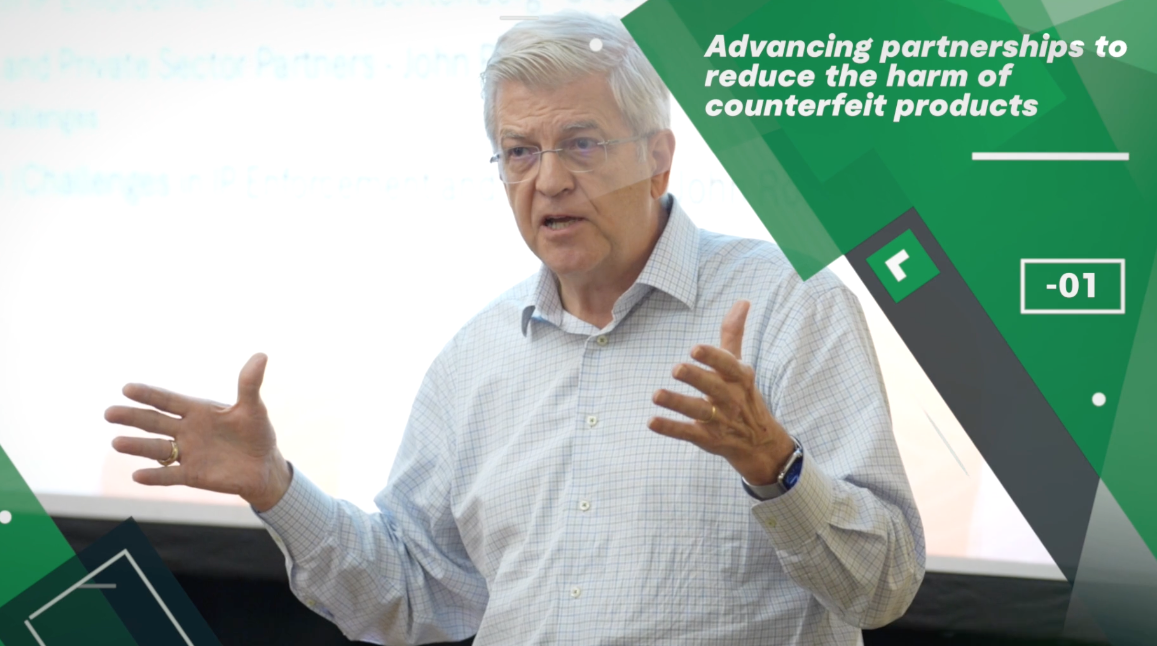
Uniting for Integrity: How Anti-Counterfeiting Partnerships Are Protecting the Supply Chain
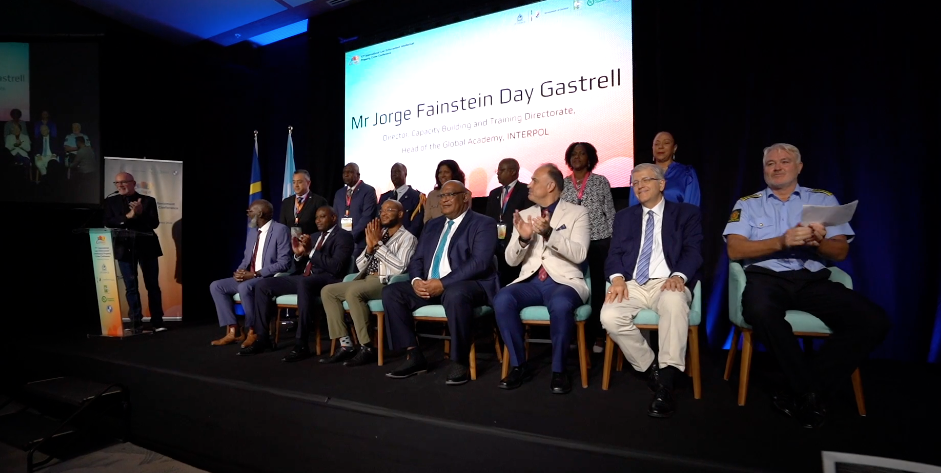
Protecting Consumers, Ports and Supply Chains
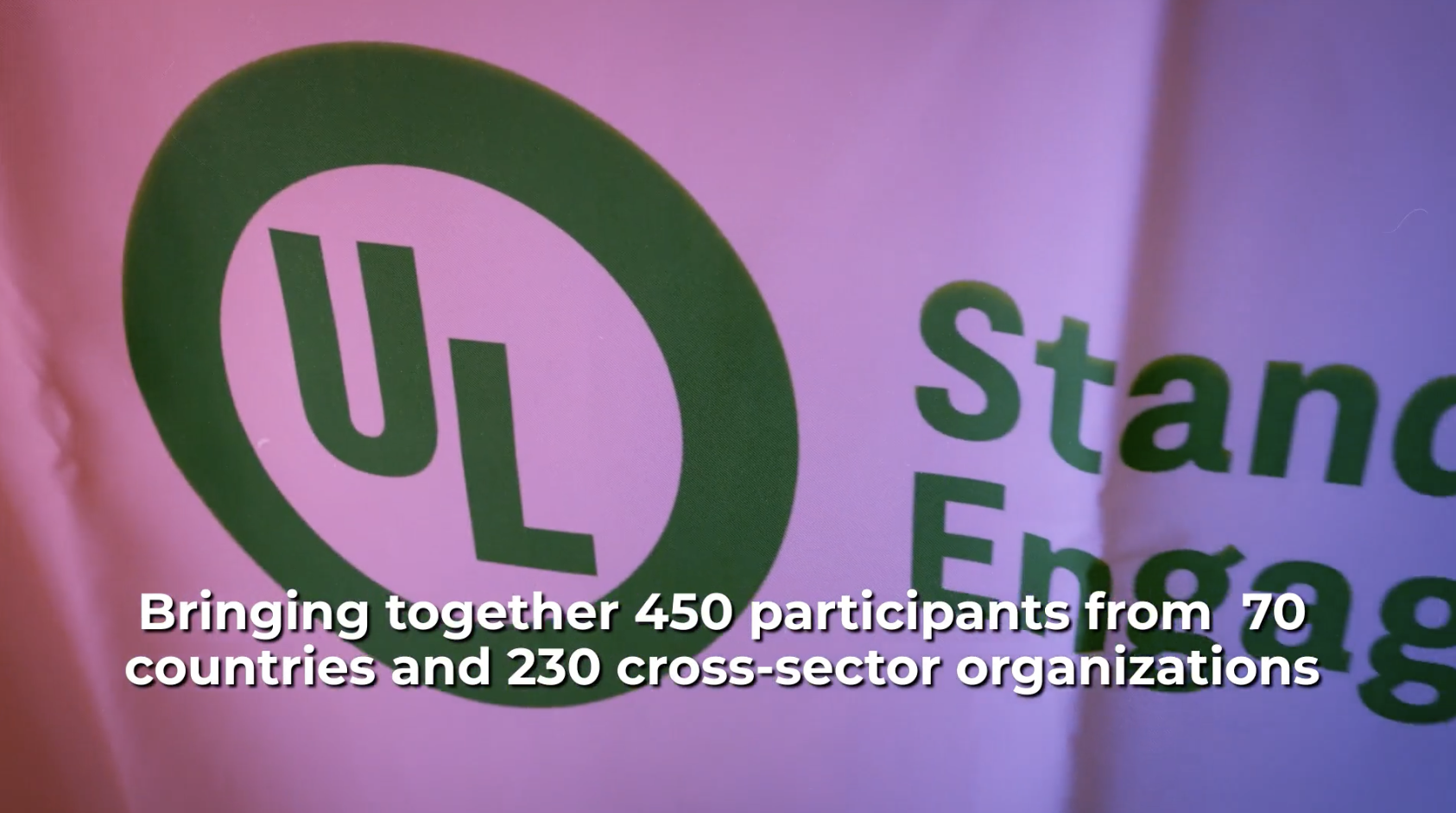
The 2025 IP Crime Conference
Anti-Counterfeiting Resources
We collaborate with anti-counterfeiting associations, industry groups, and stakeholders to share expertise and resources, driving more effective global education and awareness initiatives. Explore these resources to boost your safety knowledge.
-
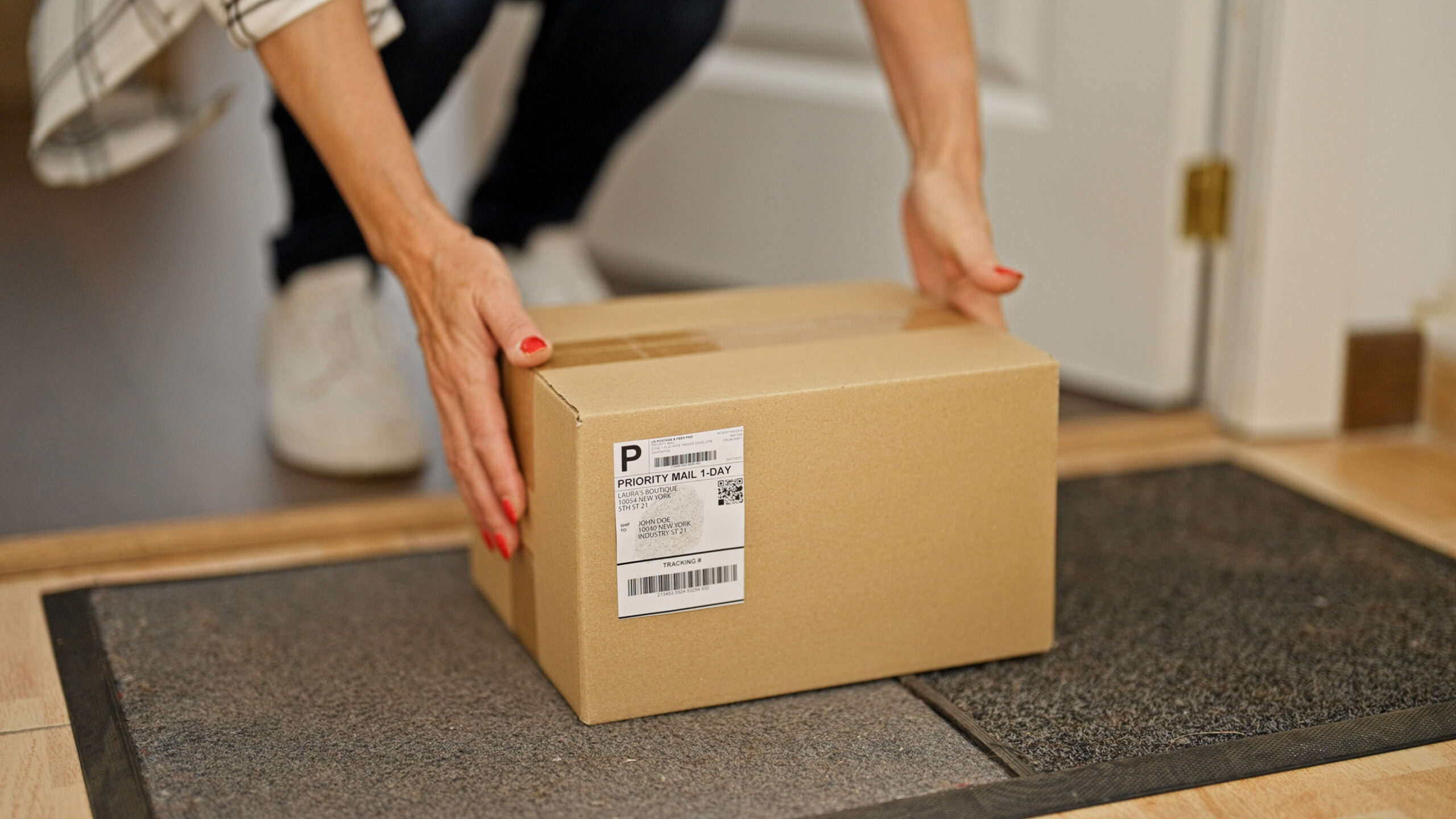
Don’t Fall for Fakes on Black Friday: What Gift Buyers Should Know
Shopping Black Friday? Don’t fall for fakes. ULSE reveals how to avoid counterfeit gifts, from electronics to holiday lights, and…
-

The Hidden Dangers of Counterfeit Batteries (And What You Can Do)
Discover the hidden risks of counterfeit lithium-ion batteries and learn how to spot and avoid unsafe fakes to protect your…
-

Holiday Fakes Have Real Consequences
Reprinted from our 2024 Holiday Safety Guide When people think of counterfeit items, they mostly think of accessories and…
Frequently Asked Questions
Education can be one of our greatest assets in fighting counterfeiting safety risks. Continue reading to find common questions about anti-counterfeiting safety and learn how to mitigate your risk.

most commonly asked
Who Do Counterfeit Products Impact?
Counterfeit products pose serious risks to human health, with some leading to injury, illness, or death. Dangerous fakes, such as life safety devices and electrical products, increase the risk for consumers and responders alike. These products lack proper testing, safety assurances, and may not meet regulations or function as intended. Manufactured in unregulated conditions, counterfeits can contain harmful chemicals, endangering health. Additionally, counterfeit goods in transportation networks create significant safety hazards for personnel across various sectors.
How Do Counterfeit Products Impact Our Communities?
Product counterfeiting threatens communities by funding organized crime, depriving governments of vital revenue, and undermining economic security. It also jeopardizes infrastructure, the digital ecosystem, and transportation networks, causing potential damage to both public and private property. Counterfeit goods can infiltrate supply chains, introducing unsafe components and malware that disrupt critical industries and systems. These products can lead to dangerous outcomes, including explosions, fires, and electrical failures, resulting in significant damage. Additionally, counterfeit products finance illegal activities, create unfair competition, limit innovation, and weaken the rule of law. Counterfeiters often exploit labor laws, using forced labor and human trafficking, including children, to produce and distribute hazardous goods.
How Do Counterfeit Products Impact Our Planet?
Counterfeit products have a severe ecological impact throughout their lifecycle, from manufacturing to disposal. They affect thousands of industries, with hundreds of millions of unsafe goods entering the supply chain and reaching consumers and landfills. These products can contain dangerous chemicals and toxins, polluting groundwater, waterways, and wildlife. Improper disposal and recycling practices cause long-lasting environmental damage, contaminating vital ecosystems. The ecological harm caused by counterfeit goods can persist for decades, threatening the planet’s sustainability.
What Is Intellectual Property Crime?
Intellectual property crime includes a range of offenses, such as product counterfeiting and copyright piracy, which violate the rights of trademark, patent, and copyright owners. IP crime is an identified, persistent, and direct threat to individual and collective human health, public safety, and the environment. Counterfeit goods are illegal, and while many people may view counterfeiting as a harmless crime, counterfeits are also extremely dangerous.
What Is the International IP Crime Conference?
ULSE Standards & Engagement combats IP crime by partnering with INTERPOL to cohost the annual International IP Crime Conference. This event provides law enforcement and industry professionals a platform to collaborate, share insights, and explore innovative solutions to transnational IP crime and illicit trade. The interactive agenda enhances capabilities, knowledge, and readiness to address these challenges.
How Is ULSE Anti-Counterfeiting Working to Combat IP Crime?
ULSE Anti-Counterfeiting plays a major role in fighting IP crime through the International IP Crime Investigators College, a law enforcement training initiative, led in cooperation with INTERPOL. IIPCIC is the only fully interactive online training platform providing global law enforcement with a free, broad-based curriculum on combatting transnational organized intellectual property crime. The college plays a unique role in safety by educating and protecting our first line of defense against counterfeit products. Since its inception in 2010, the college has trained over 40,500 people representing 207 countries.
How do I contact ULSE for questions or information about Anti-Counterfeiting?
Please reach out to anti-counterfeiting@ul.org.
Get Involved
The best standards are made possible by diverse voices and deep collaboration. Be part of the process by helping inform the next generation of standards.
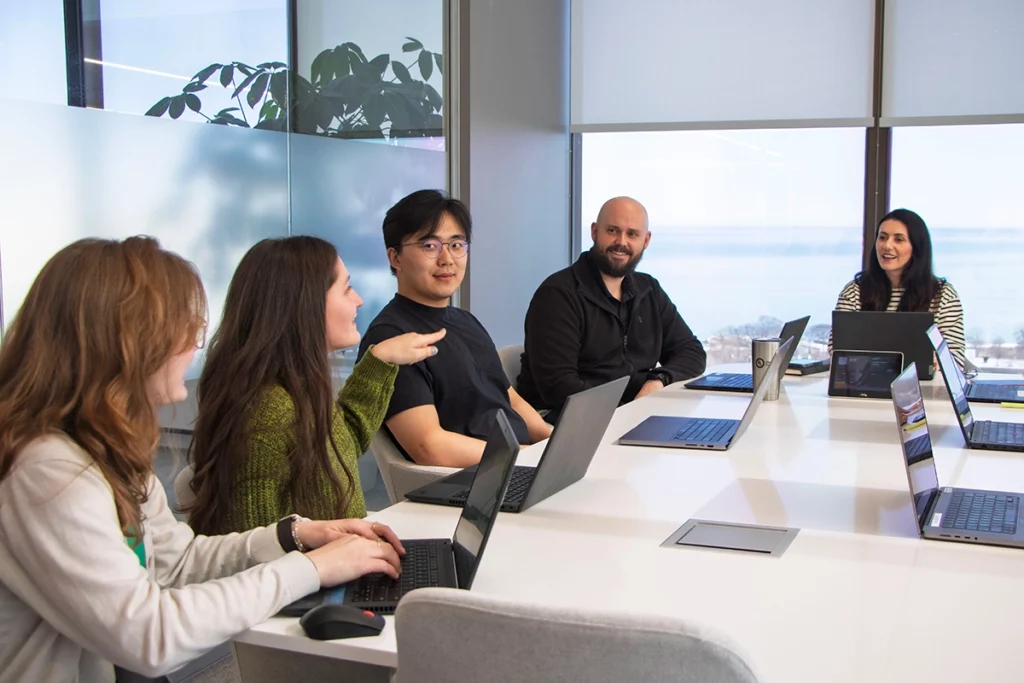
Technical Committees
Each TC is a diverse group of experts representing a broad range of perspectives and interests, including consumers, manufacturers, regulators, supply chain professionals, and more.
As a TC member, you will review proposals for new or revised standards and work collaboratively to achieve consensus through balloting in our transparent process.

Stakeholders
Stakeholders can submit, review, and comment on proposals for new standards or revisions to existing standards. While these individuals cannot vote, the TC considers their input during the standards voting process. Since standards affect everyone, all are welcome to participate as stakeholders. Register online through our Collaborative Standards Development System, CSDS.